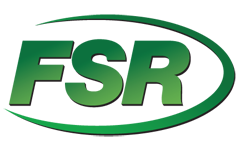Guest post written by Mario Maltese. Reposted with permission from AQAV at aqav.org.
What is “Third Party Commissioning?”
 In legal terms, the word “party” refers to a person taking part in a transaction or contract. An AV Company engaging in a contract with an AV Buyer forms two parties in the contract. When the AV Company completes a battery of tests themselves (using the AV 9000 Commissioning Checklist) intending to certify what they just installed as being compliant with that contract, we call that “First Party” commissioning. It is similar to an internal audit. Personnel specifically trained in the tests, with the required instrumentation, should perform the tests and that personnel should not be the same personnel who installed the system.
In legal terms, the word “party” refers to a person taking part in a transaction or contract. An AV Company engaging in a contract with an AV Buyer forms two parties in the contract. When the AV Company completes a battery of tests themselves (using the AV 9000 Commissioning Checklist) intending to certify what they just installed as being compliant with that contract, we call that “First Party” commissioning. It is similar to an internal audit. Personnel specifically trained in the tests, with the required instrumentation, should perform the tests and that personnel should not be the same personnel who installed the system.
When the AV Buyer uses its own trained and equipped personnel to perform the AV9000 Commissioning tests that is called “Second Party” commissioning. Many organizations that have the specialized personnel and instrumentation resources to do this have done so.
When the AV Buyer brings in a disinterested party, one not part of the Project Team who designed or installed the AV system, one who simply applies the AV9000 Standard to gather the evidence of compliance (or non-compliance), that is called “Third Party” commissioning.
Third Party AV9000 commissioning is by far the best practice for today’s complex audiovisual technology for catching all the defects in an economic fashion and improving the vendor pool. Remember that each system is a one-of-a-kind application of technology from the perspective of a design or the environment itself, with many variables. Experience has shown it is best for both the AV Company, who will be paid faster when the system is certified by an outside party and for the AV Buyer as well, who saves in man-hours of staff time and putting the room to good use in the fastest time possible. More on this later…
The Obvious – The obvious reasons come quickly to mind: whenever you are doing something that is important, and complex, and you want to make sure there are no defects that would hurt your reputation, you have someone check your work. It’s the same reason why you have someone proofread something you just wrote. It’s the same reason why you need to have a Third Party Commissioning Agent for HVAC systems on any new construction over 50k ft2 for LEED credits (millions of dollars are at stake). It’s why hospitals have started using cameras in operating rooms to make sure the surgical staff follows their surgical checklists (lives are at stake).
You could argue that the high dollars or the lives that are in jeopardy can clearly substantiate the extra costs that would be associated with third party commissioning. This is obvious. The Buyers of the HVAC services enjoy a 5-10 % increase in operating efficiency each year because they employed a third party commissioning agent since they catch mistakes like missing or incorrectly installed equipment, avoiding occupant complaints and callbacks, indoor air quality and thermal comfort problems, premature equipment failure, and litigation. And besides saving lives, having significantly less complications from surgery, the hospitals that deploy third party commissioning also enjoy an additional 15% increase in production, causing less delays to patients for their surgical procedures. As far as Return on Investment, the cost savings easily pay for the third party services.
Meanwhile, the compliant companies that furnished the systems get paid faster once the third party confirms that compliance. And since the services are without the defects, the customer is happy, which makes the Buyer happy. The Buyer will share the outcome when they network with other Buyers, giving the compliant parties a very credible sales force – those happy Buyers (or patients, for that matter).
The Not-So-Obvious – But wait! There’s more!
When third party commissioning is applied to audiovisual technology, there are other benefits when AV9000 is used. Third party commissioning agents carry CQT (Certified Quality Technician – AV) certification. That means they are trained auditors. When they complete their work, they prepare a written Audit Report, showing the evidence they obtained for each of the tests in the AV9000 Staging or Commissioning Checklist, whichever is being applied at the time. The results of the audit are reviewed with the AV personnel that produced the system. The AV personnel are trained on what the defects are, where they are, and how to avoid them in the future. The results are an improvement to the vendor pool, since the next time the AV Company furnishes a system; they deliver it without the defects. This has a result in lowering costs to the AV Company, who will over time drop their prices to the Buyers in the attempt to increase their market share. Everybody wins! This has already started to happen to a few fortunate early adopters to AV9000.
The Buyer enjoys having enhanced engineering on their side, and engineering applied to the actual evidence of product, practices, and performance. When questions arise, this resource can prove more valuable than if they arise within the original project team. Some AV companies push back when defects are identified, and the disinterested third party can go a long way in bringing in a different perspective. If the Buyer uses an outside agent, such as an AV Design firm, this advantage is even greater if there are warranted or unwarranted questions about the design.
Experience has shown that when everything goes as planned, and the job is verified to be compliant by the third party, everyone’s reputation is somehow validated. There is an emotional dividend when all leave the job with the added pride that is due.
